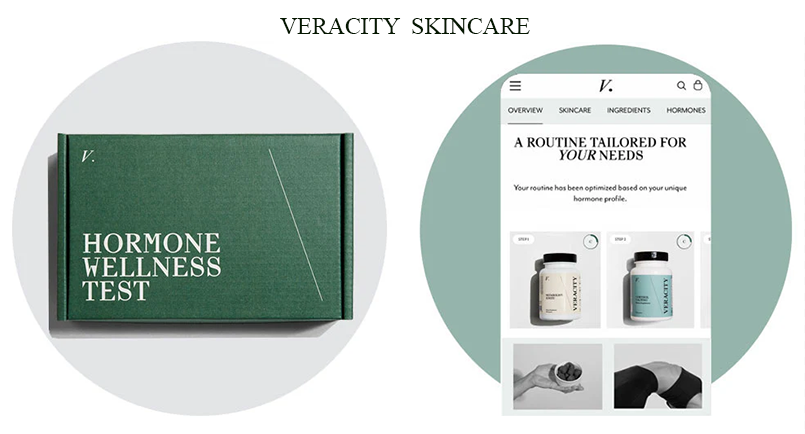
Pregnancy transforms the body in so many ways, and your skin is no exception. After giving birth, as hormone levels shift back to their pre-pregnancy states, your skin can go through several surprising changes. Understanding these postpartum changes can help you tackle them with confidence and care, leaving you feeling empowered and radiant in this new chapter of life.
Contents
Why Does Skin Change After Pregnancy?
During pregnancy, hormones are in overdrive, especially estrogen and progesterone, which work to maintain a healthy pregnancy. After delivery, these hormone levels drop rapidly, causing a “reset” that can lead to a variety of skin changes. While some women experience a return to their pre-pregnancy skin, others may encounter new concerns or notice old issues resurfacing. This adjustment period is normal, and most skin changes resolve or improve as hormone levels stabilize over the months that follow.
The Role of Estrogen and Progesterone
Estrogen and progesterone are responsible for many of the glowing skin benefits during pregnancy, like increased hydration and elasticity. Once these hormone levels plummet, the skin may feel dry, saggy, or more prone to irritation. Understanding the specific role these hormones play can help us figure out how to treat any lingering skin concerns.
Common Skin Changes After Pregnancy
Here are some of the most common skin changes that new mothers experience postpartum, along with tips on how to address each issue effectively.
Postpartum Acne
Postpartum acne is a common complaint, especially as progesterone levels drop and the skin’s oil production adjusts. This hormonal shift can lead to clogged pores and acne breakouts, even if acne wasn’t a concern before pregnancy.
Managing Postpartum Acne
- Gentle Cleansing: Use a mild, non-comedogenic cleanser to keep your skin clean without stripping its natural oils.
- Spot Treatments: Look for acne treatments with ingredients like salicylic acid or benzoyl peroxide. Be cautious if you’re breastfeeding, as some ingredients may not be recommended.
- Hydration: Even if your skin feels oily, keeping it hydrated helps maintain a healthy skin barrier and prevent further irritation.
Patience is key, as hormonal acne usually subsides as hormone levels balance out.
Melasma and Hyperpigmentation
Melasma, or the “mask of pregnancy,” is common during pregnancy due to increased melanin production. For some, these patches fade postpartum, but for others, they may linger, especially without sun protection.
Reducing Hyperpigmentation
To reduce dark patches or discoloration, consider the following:
- SPF: Apply a high-SPF sunscreen daily, as sun exposure can worsen melasma and other pigmentation issues.
- Vitamin C: Use a serum with vitamin C, which can brighten the skin and reduce pigmentation over time.
- Gentle Exfoliation: Look for mild exfoliants like lactic acid to help remove dead skin cells and improve skin tone.
Melasma may take months to fade completely, so stick with a gentle routine to see gradual improvements.
Dryness and Dehydration
After pregnancy, many women experience dry, flaky skin due to reduced estrogen levels. This hormone helps with skin hydration and elasticity, so lower levels can lead to a dull or rough texture.
Restoring Moisture
To tackle postpartum dryness, aim to rebuild the skin’s moisture barrier with these steps:
- Hyaluronic Acid: Apply a hyaluronic acid serum to help draw moisture into the skin and keep it plump.
- Barrier Creams: Look for rich moisturizers with ceramides or shea butter to lock in moisture and repair the skin barrier.
- Stay Hydrated: Drinking plenty of water and eating water-rich foods can also help your skin from the inside out.
Keeping up with a hydration-focused skincare routine can make a noticeable difference in skin texture and comfort.
Loss of Skin Elasticity and Firmness
Skin elasticity can decrease after pregnancy, especially around areas that have been stretched, such as the belly, breasts, and thighs. This is largely due to a drop in collagen production and hormonal changes that affect skin structure.
Encouraging Skin Firmness
There are several ways to improve skin elasticity and support firmness:
- Topical Retinoids: Consider using a mild retinoid (after consulting a healthcare provider, especially if breastfeeding), which can stimulate collagen production.
- Massage: Massaging areas prone to sagging can help improve circulation and support skin tone.
- Protein-Rich Diet: Eating foods high in protein, like lean meats, nuts, and legumes, can help the skin maintain its strength and elasticity.
Be patient, as it can take time for skin to regain elasticity, and some areas may remain slightly looser. This is a natural part of the postpartum process.
Stretch Marks and How to Handle Them
Stretch marks are incredibly common after pregnancy, especially on the belly, breasts, and thighs. While they may fade over time, they’re unlikely to disappear completely. Luckily, there are ways to make them less noticeable and improve the skin’s texture in these areas.
Reducing the Appearance of Stretch Marks
- Moisturizers: Use creams or oils with ingredients like cocoa butter, shea butter, or vitamin E to keep the skin hydrated and supple.
- Gentle Exfoliation: Exfoliating can help smooth out the skin texture and improve the appearance of stretch marks.
- Laser Treatments: For those looking for faster results, laser treatments can be an option, though they can be costly and may not be necessary for everyone.
Remember, stretch marks are a normal part of the body’s changes after pregnancy, and they often lighten over time.
When to See a Dermatologist
Most postpartum skin changes resolve on their own as hormone levels stabilize, but if you’re dealing with severe acne, stubborn hyperpigmentation, or other persistent issues, it may be worth consulting a dermatologist. Treatments such as chemical peels, laser therapy, and prescription medications can offer effective solutions for tougher skin concerns.
However, always mention that you are postpartum and, if applicable, breastfeeding, as this will affect the types of treatments your dermatologist may recommend.
Embracing the Skin You’re In
Postpartum skin changes can feel unexpected, but they’re also a reminder of the incredible journey your body has been through. By nourishing your skin with gentle, effective products and a little extra TLC, you can restore its health and vitality. Embrace this period of change and know that with time and care, your skin can look and feel beautiful, no matter what phase of life you’re in.

